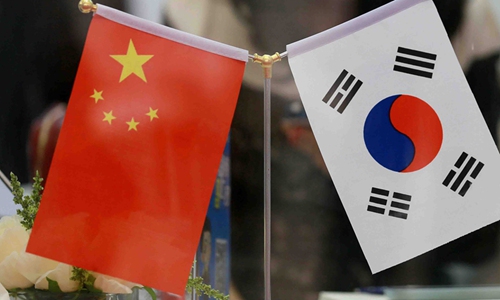
China South Korea File photo:CGTN
China’s CCTV and South Korea’s public television network KBS signed an agreement on Monday to cooperate in various aspects of the cultural industry, which Chinese experts said is a significant move to promote the cultural communication between the two countries.
According to a report by CCTV on Monday, 2021 will be the China-Korea Cultural Exchange Year. The two sides in line with the principles of equality, mutual benefit and friendly consultation will be carrying out cooperation in many areas such as program content, media technology and industrial operation for promoting cultural exchanges, enhancing friendship and mutual trust, and advancing the China-South Korea strategic partnership.
Chinese experts told the Global Times the agreement is a good sign for the emotional connection of the people in the two countries as well as a good opportunity for multi-learning in the cultural industry. They also said the agreement might stir up another round of Korean culture in China and boost the South Korean economy.
Yuan Xiaomu, a Chinese producer who once worked on importing South Korean TV dramas and variety shows to the Chinese mainland, told the Global Times on Tuesday that the reason why K-pop bands such as BTS are so popular in China is because they are in line with young fans’ aesthetics and life values.
"Cultural phenomena always precede economic benefits. Just like the Korean wave about six years ago, the South Korean cultural industry will surely gain a lot of financial benefits if Korean music, films and television shows are imported into China,” said Yuan.
China News reported in 2015 that K-pop star Moon Hee-joon revealed in a Korean talk show that he earned about KRW100 billion ($89.8 million) in China in just one year after he appeared in a large number of advertisements.
According to Yuan, South Korean cultural companies used to have a lot of cooperation with China, but they only treated China as a market and just exported their cultural works to China, without having an equal acceptance of Chinese cultural works.
"This time, we should think about how to balance the cooperation, making sure it is equal. Setting a certain import quota system might be a favorable idea for both sides,” Yuan suggested.
Fan Xiaoqing, an associate professor with the Theater and Film Academy of the Communication University of China, told the Global Times that South Korea has a more mature production industry in film and drama compared with China. The Chinese side could take the opportunity to learn more from their slick industrialized cultural industry.
However, she also pointed out the need to import “selectively” rather than just taking everything. “Introducing some classic items is better than just taking anything that is trending.



